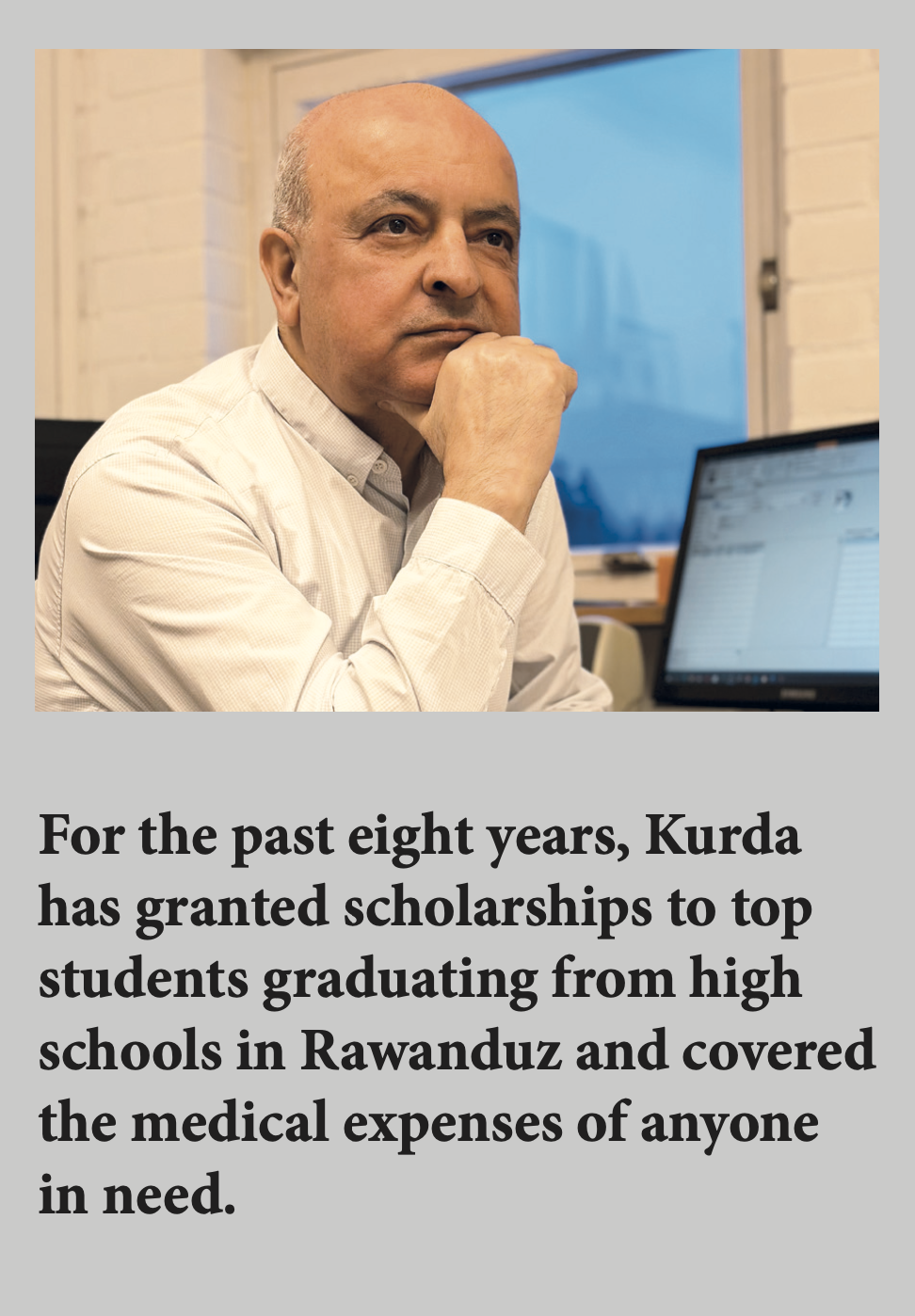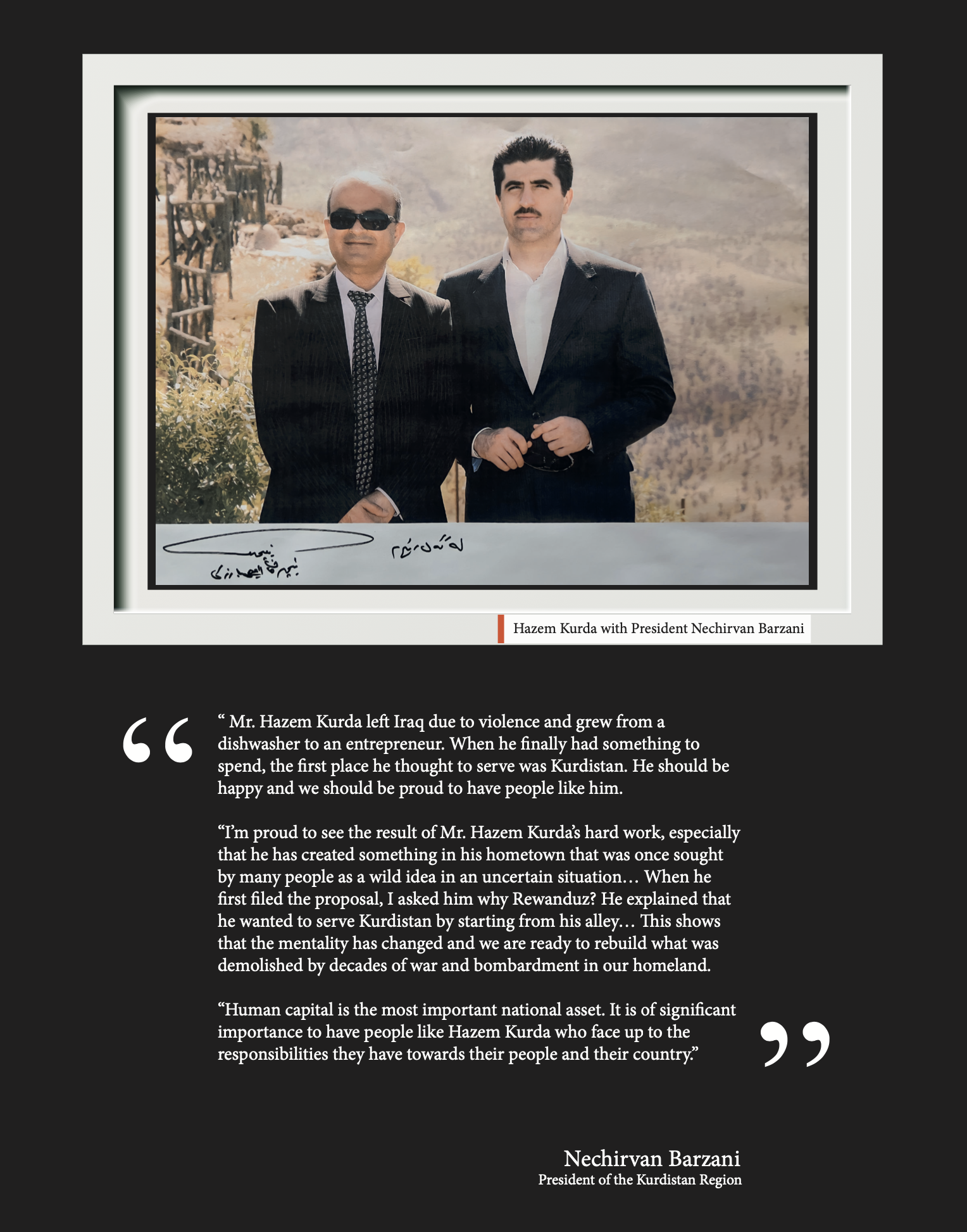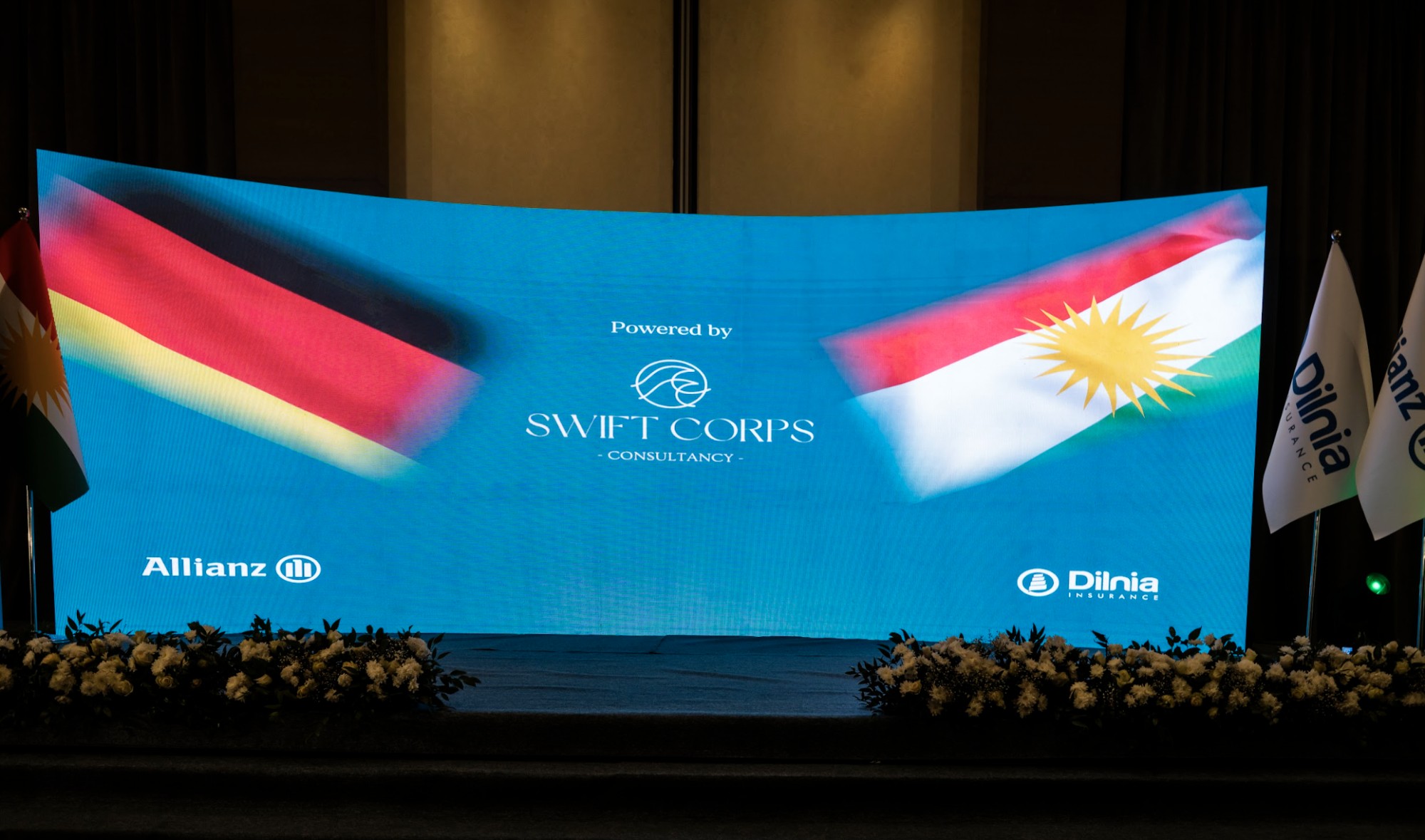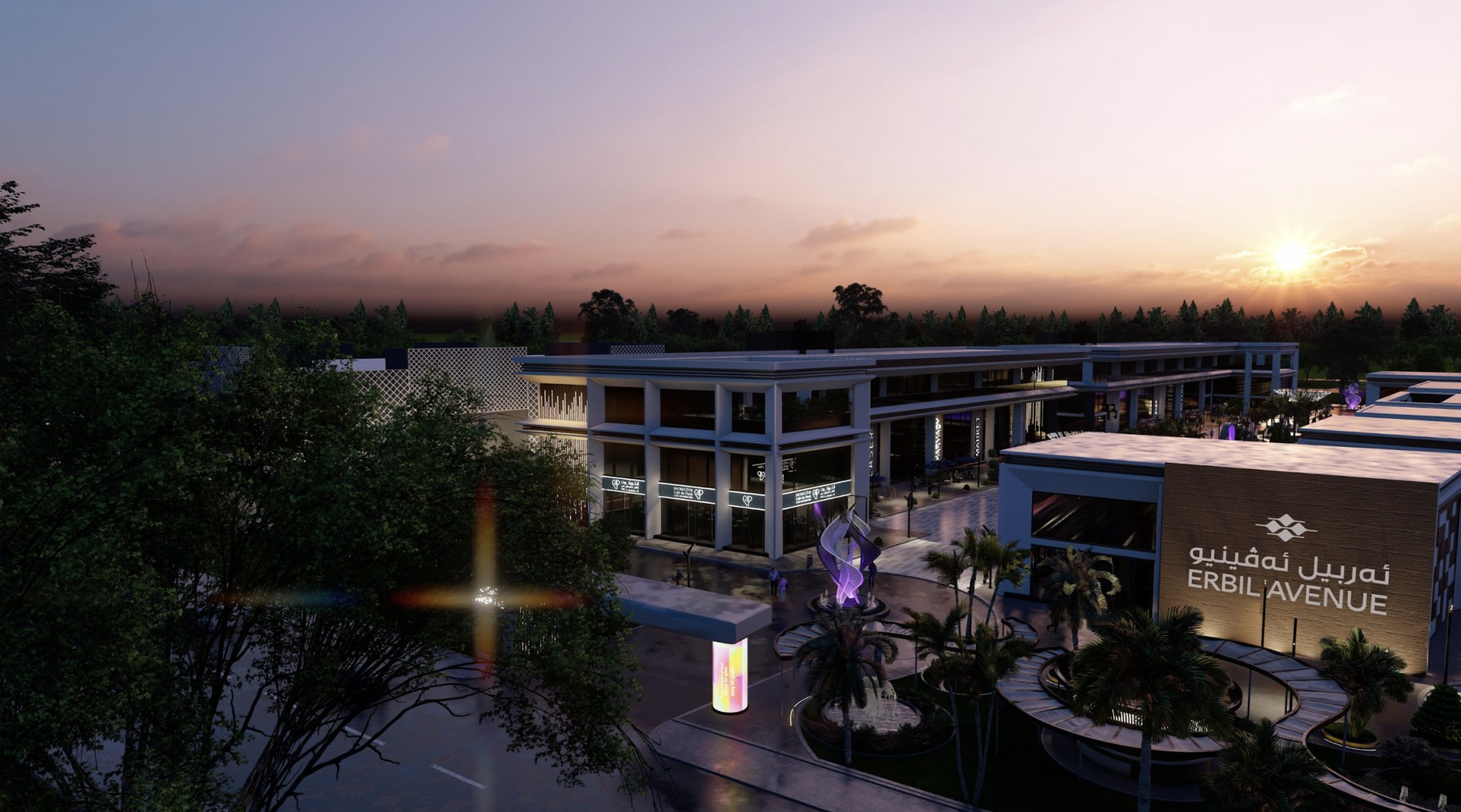Restlessness and agitation for success often lead people to search for shortcuts. In their journeys, many ambitious young men and women abandon their dreams when they hit a few dead ends.
The story of Kurdish entrepreneur Hazem Kurda is, however, a different one. Kurda, also known as the Rice King in Sweden and other Scandinavian countries, was born in a militarized mountainous town in the Kurdistan Region of Iraq and grew into one of the most prominent businessmen in Europe. His story has inspired so many people that a book entitled Riskungen: Tur och retur Rewanduz-Eskilstuna (in Swedish) is dedicated to his success story.
Formed by his youth
The story of Hazem Kurda begins in Rawanduz, one of the magnificent locations in Kurdistan best known for its breathtaking canyons and remarkable place in the history of the Kurdish struggle for freedom. Since childhood, Kurda has always dreamed big. His father, who had a great impact on his life, was also a prominent social figure in the small town where he first introduced refrigerators and TVs and allowed Kurda to manage his store’s accounts to learn the art of business. The book also gives detailed accounts of the social and political developments of the time, retelling the firsthand experiences of Kurda in supporting the peshmerga forces who at the time were fighting against former Iraqi dictator Saddam Hussein.
When late Kurdish freedom movement leader Mustafa Barzani signed an agreement with the regime in Baghdad in 1970, securing peace and self-rule for the Kurds, the residents of Rawanduz helped each other rebuild their bombed-out homes. However, peace was short-lived. Again, Iraqi troops were mobilized, and it did not take long before tanks appeared on the edge of the Korek Mountain. Together with others, the Kurda family managed to reach a safe haven, while Hazem was sent to Basra in southern Iraq to study civil engineering.
The distance, however, did not make Kurda forget about his people. While still in Basra, he resumed his political activities and found himself in sensitive and demanding circumstances, after which he headed up into the mountains to join the Kurdish peshmerga, but he was later forced to flee, first to Iran and then to Syria. In the end, like many young men of that period, he managed to reach Sweden, where he was granted asylum in 1981.

Swedish entrepreneurial star
In Sweden, Hazem Kurda continued to make many active choices to fight for what he believed in. As in Kurdistan and Iraq, his actions were sometimes weighed down by obstacles and setbacks, but often enough they were lifted by favorable coincidences. His fearless and straightforward manner put him in difficult situations sometimes, but thanks to strong will and hard work, he always managed to move on and create better life conditions for himself and his family.
By washing dishes, working at a home-appliances factory, and starting a sausage stand in Eskilstuna, he eventually managed to defy the hardship and start a wholesale company in Sweden, which marked the beginning of his successful rice factory. He traveled to Thailand and India to find the best quality rice, which he then processed in Eskilstuna. Success came quickly. Soon his company, Swedish Rice, started growing and offering not only high-quality products but also job opportunities to many people.
Towards the end of the 1980s, his thoughts were often with the family in Kurdistan, but due to the dangerous political situation, it was impossible to return home. From his TV couch in Eskilstuna, Hazem Kurda often anxiously followed the Iraqi regime's brutal attacks on the Kurdish civilian population, including his own family, who had fled to the mountains towards Turkey to escape bombs in the early 1990s. Eventually, the West joined forces with the Kurds and succeeded in establishing the safe zone in northern Iraq that ultimately protected the Kurds from yet another massacre.

Heading home to realize his dreams
As events unfolded, Hazem Kurda could not sit and watch the fast developments from Sweden. He decided he had to head back home to help. He began a humanitarian initiative to donate large amounts of rice to the residents of Rawanduz and assist orphans with food and clothing.
When Saddan Hussein's regime fell in 2003, Hazem Kurda finally got the opportunity to start a major project that he had always dreamed about since he was a child: building a holiday resort and rollercoasters in the mountains outside of his hometown of Rawanduz.
His friends always had great doubts about his wild idea; some even thought it was completely insane to invest in a gigantic touristic project in a region that had just survived war. However, Hazem Kurda followed his embodied feelings and then worked purposefully.
In the spring of 2007, he finally opened the door to Pank Resort (also known as Shinglbana Resort), one of the most attractive touristic projects in the Kurdistan Region and all of Iraq. During the opening ceremony, also attended by then Kurdistan Region Prime Minister Nechirvan Barzani, Hazem Kurda said the location of his project was a garbage landfill and that he had always dreamed about a touristic project in that unique landscape.
“I always dreamed that, but I never thought I would one day be the person who actually fulfilled that dream,” Hazem Kurda told Kurdistan Chronicle during an interview.
Old footage from the opening ceremony at Pank Resort shows a large number of locals and government officials with then Prime Minister Nechirvan Barzani also delivering a speech to praise Hazem Kurda for “creating hundreds of jobs and adding to the fame of Rawanduz.”
“Implementing such a project by a successful Kurdish entrepreneur is a message from Kurdistan to the outside world: our homeland has been repeatedly gassed and bombed in the past but we are ready now to rebuild it. We are looking toward the future,” Barzani said.
Faith in the future
Thanks to Hazem Kurda’s Pank Resort (Shinglbana), Rawanduz has now become one of the most famous touristic attractions in the Kurdistan Region and Iraq, where locals and foreigners stay for days to enjoy the unique nature of the area across all four seasons.
But that is not all. Hazem Kurda and his Pank Resort project are also known in the region for their charity activities and humanitarian initiatives. For the past eight years, Kurda has granted scholarships to top students graduating from high schools in Rawanduz and covered the medical expenses of anyone in need. He told Kurdistan Chronicle that soon he will announce a special annual fund so that the Pank scholarships will continue after him.
Hazem Kurda is the first foreigner to make it to the list of the top 80 business minds in Sweden. He has recently retired and plans to focus on charity activities and giving seminars at universities around Kurdistan to share his experience with the new generation. During the interview, he repeated numerous times that one’s service to the homeland should start from one’s own neighborhood.
“If we Kurds don't have faith in the future, how will others dare to invest in Kurdistan? We've been waiting for decades for the freedom to create something of our own, and we can't hesitate,” he concluded.

Ann-Catrin Emanuelsson has a Ph.D in peace and development studies. She is an author and freelance journalist in Sweden.

